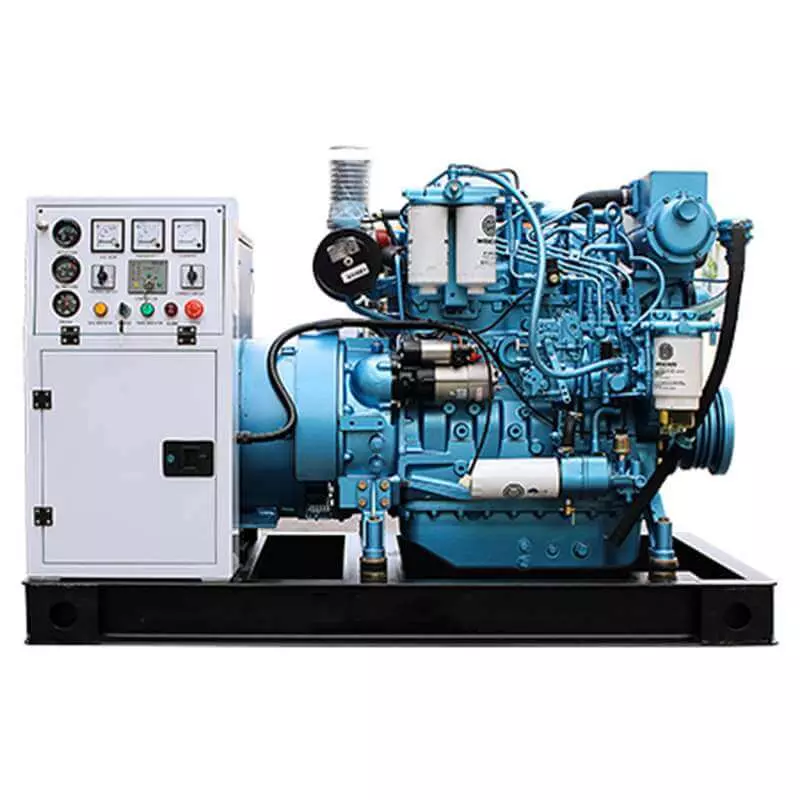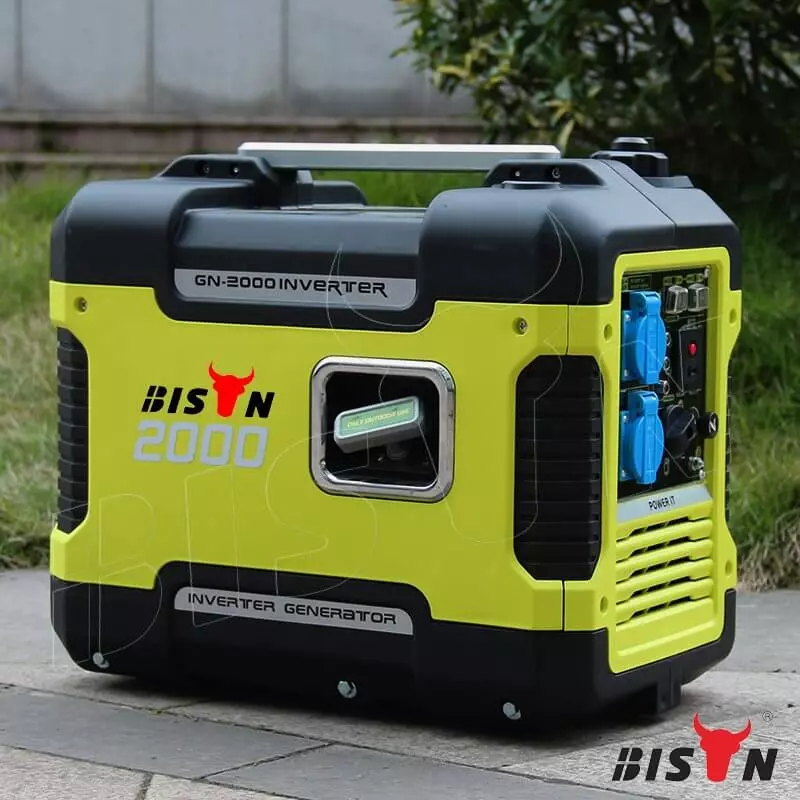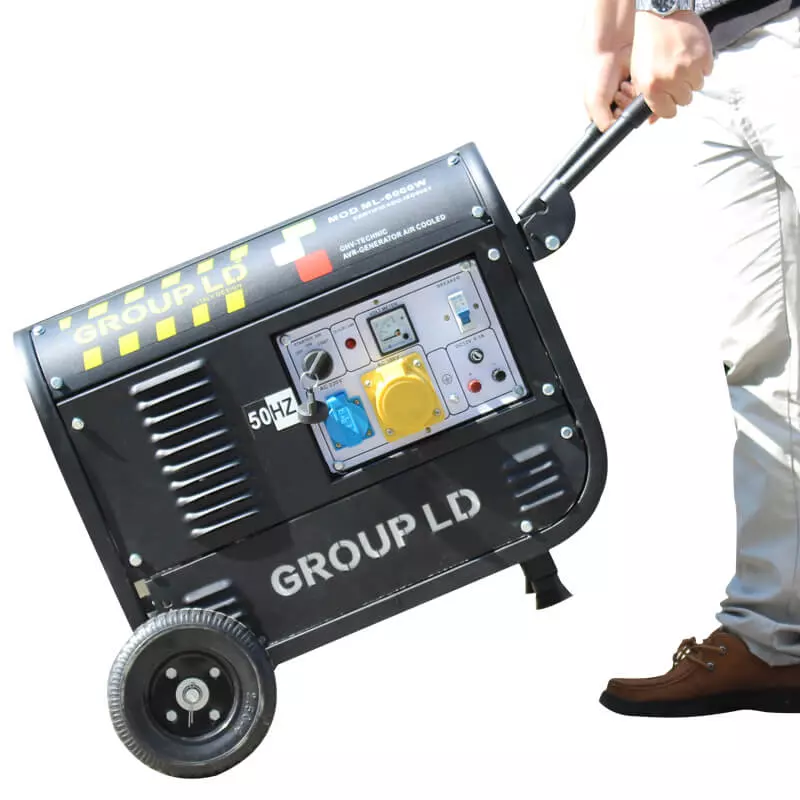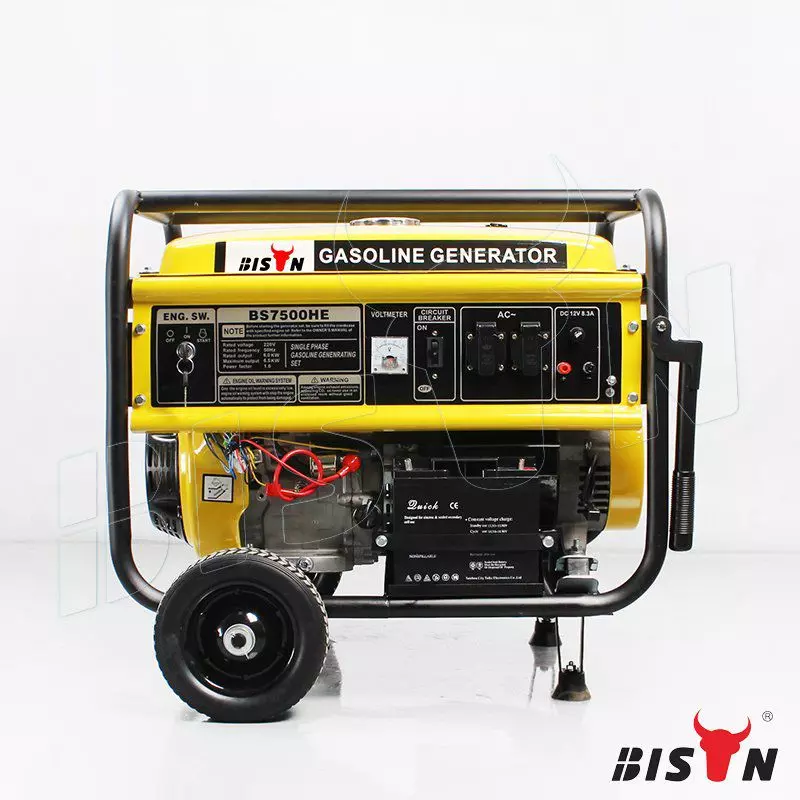The difference between genset and generator
2023-10-13
Table of content
Faults, blackouts and brownouts wreak havoc on businesses and homes. These power outages can be disruptive and damage valuables like electrical appliances. The worst is when power outages affect medical facilities and halt operations. However, this is where generators step in and are lifesavers in many ways.
When you search for backup options for a home, workplace, or business, you may come across the term genset. What does this term mean? And what is this machine used for?
This article will give a complete analysis of gensets and generators. BISON will discuss types, working principles, applications and what gensets and generators can be used for.

What is a genset?
Genset is short for generator set and is commonly used interchangeably with the term generator. Most hospitals, businesses and homes today require a stable and constant electrical supply. A genset is a source of electricity that generates electricity with the help of a motor. You can use it as a backup or primary power source.
Gensets offer additional security in the event of a power outage or brownout. Standby gensets can help keep critical systems running in homes, businesses, and hospitals during a power outage.
Gensets also provide self-generated power to remote locations. These areas are usually rural, with mines, construction sites and campsites. Gensets allow people to explore, build and even harness the power of living deep in the forest.
How do gensets work?
Electrical gensets work the same way most cars do. They come with an engine, and an alternator.
An engine will convert fuel such as biogas, diesel, gasoline, or natural gas into a mechanical power source. Mechanical energy will effectively operate the alternating rotor. An alternator has two main components: a stator and a rotor. When the rotor rotates, a magnetic field between the stator and the rotor creates an electromagnetic induction.
Genset types
There are many electrical gensets, all have the same components, are set in a base frame, and require fuel. However, there are some differences. Such as different shapes, sizes and features and use many fuel types. Below are some genset systems:
Gasoline gensets
Gas-powered gensets are cheap and portable. The disadvantages of these generators are that they last only a short time and have poor fuel consumption. Gasoline can only be stored for twelve months before it goes bad. Also, gasoline is flammable, which makes it extremely dangerous.
Diesel gensets
It is the most popular type. Diesel engines are more powerful than petrol engines. Diesel is also less flammable than petrol and is readily available. With proper maintenance, diesel gensets can last quite a while.
Low emission gensets
Biodiesel, propane, and natural gas-powered low-emission gensets are on the market.
Propane: burns cleanly, has a long shelf life, but is very flammable. The installation cost is high. Propane gensets also burn three times more fuel than diesel-powered gensets.
Natural gas: Cheap and readily available, it can come from shale reservoirs, so you won't need to refill it. The drawback is that natural gas-fired gensets are not portable, and their installation costs are high.
Biodiesel: Biodiesel combines diesel and biological sources, such as vegetable oil or animal fat. This diesel emits fewer petroleum fumes and is safer for the environment, creating a much smaller fossil fuel footprint and less waste.

What is a generator?
Generator is also a powerful device that is typically a compact mobile unit that offers convenience and flexibility. They are designed for use in a variety of environments, from camping trips to small construction sites, and are typically fueled by gasoline or diesel.
Types of generators
Portable generator
This generator is usually diesel-powered or gasoline-powered and can provide temporary power. Some features of this generator:
It uses a combustion engine to provide electricity.
It can be plugged into sockets or other electrical appliances.
It can be wired into the panel.
Perfect for remote areas.
It can power refrigerators, televisions and freezers.
Inverter generator
AC inverters work with the help of an engine that connects to an alternator and produces an alternating current. This generator also uses a rectifier to convert AC to DC power and then back to AC. These are the features of this generator:
Comes with high-tech magnets.
Electricity goes through three stages to generate power.
It is energy efficient, and the engine speed automatically adjusts to the power requirement.
It can be set to any voltage or frequency when used in AC power equipment.
It is lightweight and compact.
It can fit in an RV, boat or car.

What is the difference between a generator and a genset?
| genset vs generator | Generator | Genset |
| definition | A machine that converts mechanical energy into electrical energy. | A combination of a prime mover and an alternator represents a complete power generation unit. |
| key features | - Portability - Versatility - Variety of fuel options (diesel, gasoline, natural gas, or propane) | - Superior reliability - Advanced control features - Soundproof enclosures for noise reduction |
| applications | - Temporary or emergency power supply - Outdoor events - Remote construction sites | - Consistent, reliable power supply - Hospitals - Data centers - Industrial facilities |
| power output range | Few kilowatts to several megawatts | Can also range from a few kilowatts to several megawatts |
| advantages | - Easy to transport and use - Suitable for various settings - Lower initial cost | - High reliability - Efficient power generation - Advanced control and monitoring systems |
| disadvantages | - May not be as efficient for continuous, heavy-duty power supply | - Less portable due to larger size and complexity - Higher initial cost |
| comparative analysis | Best suited for temporary or occasional use where portability is a priority. | More suitable for scenarios requiring dependable, high-capacity power for continuous operation. |
Genset vs generator: Which is better?
In the generator vs genset debate, there is no definitive answer about the better option. Both offer advantages and disadvantages that must be considered according to each situation's specific needs and circumstances.
The genset stands out for its high power supply capacity, which caters to large energy requirements. In addition, it can work continuously for extended periods, and its diesel engine gives it greater autonomy and longer functional life. On the other hand, its size and weight can make it difficult to install and transport, require adequate ventilation space, and generate noise.
As for the generator, although it does not provide as much electricity as a generator set, it is more convenient for home use and with less energy consumption. Stationary generators have substantial powers and long functional life and are generally easy to maintain and supply. However, they can be complicated to install and can be noisy.
Finally, the choice between generators and gensets will depend on the specific energy demand and usage conditions. Both options offer advantages and disadvantages, so seeking BISON professional advice and considering the features and technical specifications of the models available in the market is recommended.




